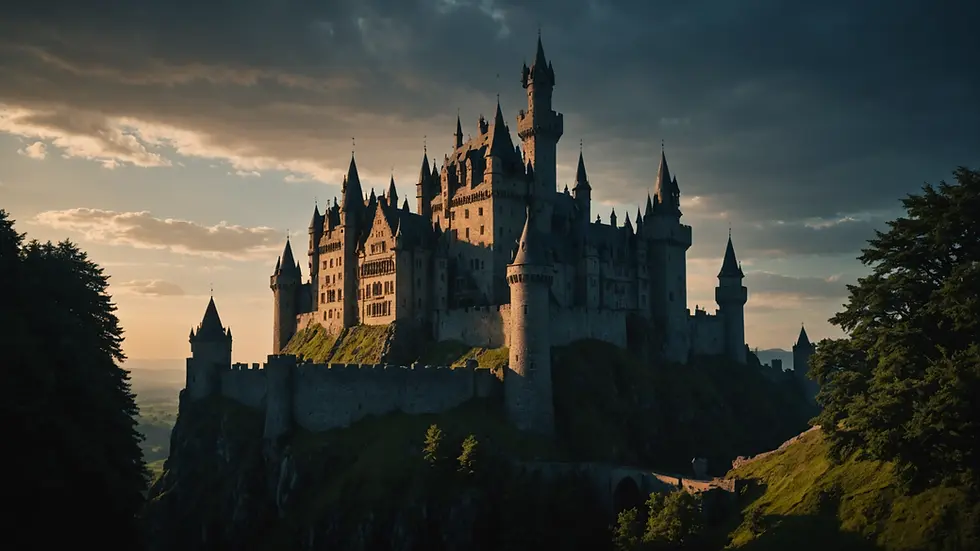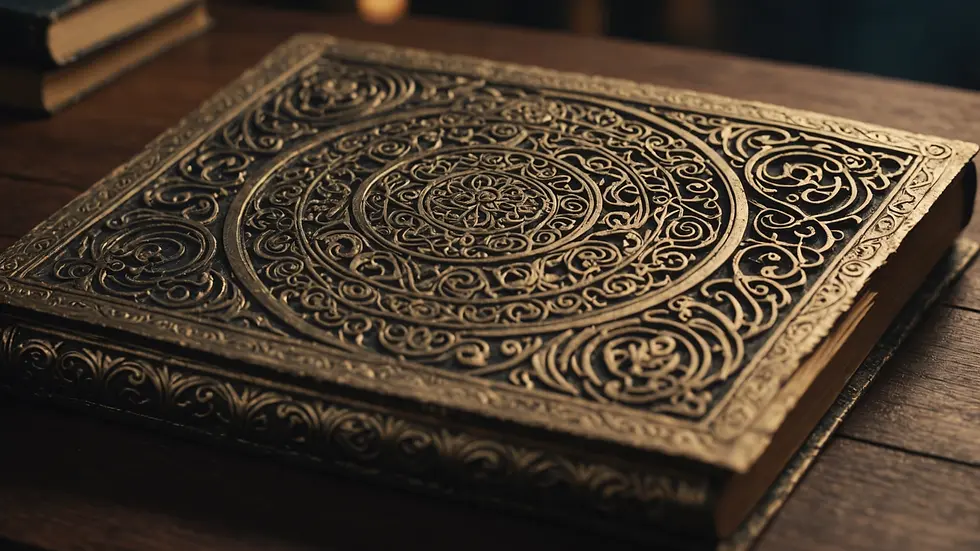Why Do We Love to Hate Villains: Exploring the Psychology Behind Pop Culture and Historical Bad Guys
- Melissa Gianoulous

- Jul 18, 2025
- 4 min read
Villains are everywhere, from the pages of our favorite novels to the silver screens of Hollywood. But why do we have such a fascination with these nefarious characters? The psychology of villainy in both pop culture and history reveals a complex web of societal norms, moral conflict, and psychological intrigue. Let’s dive into why we love to hate charmers like Voldemort, the Joker, or even infamous historical figures like Hitler.
The Allure of the Villain Archetype
From an early age, we are introduced to the concept of "good vs. evil." Villains serve as a crucial foil to heroes, representing traits we often reject in ourselves. The captivating nature of these characters draws audiences, as they often exhibit traits that, while morally wrong, are also thrilling to witness.
For example, the Joker embodies chaos and unpredictability—a stark contrast to the structured world of Batman. This chaos allows us to explore the darker sides of human nature in a safe and controlled environment.
Additionally, many villains possess undeniable charisma, making them both fascinating and memorable. Characters like Loki from the Marvel Universe exemplify this charm, leading us to root for them even when we know their actions are immoral.
The Psychological Perspective
Psychologically, our attraction to villains can be traced back to several factors, including projection, the shadow self, and even a sense of empowerment.
Projection
When we see a villain's actions onscreen, it offers us a unique vantage point: our darkest impulses are mirrored without the consequences. This projection allows us to confront our fears and insecurities.
For instance, as we watch Darth Vader's relentless pursuit of power, we can safely analyze our own desires for control. Such stories prompt us to evaluate the moral implications of power dynamics in our lives.
The Shadow Self
Carl Jung’s concept of the "shadow self" posits that we all have a darker side that we suppress. Villains often symbolize these repressed characteristics, allowing us to indulge in aspects of our personality that we typically keep hidden.
Consider the character of Walter White from "Breaking Bad." Initially a mild-mannered chemistry teacher, he transforms into a calculating drug lord. Walter captures our attention because he embodies our hidden desires—independence, power, and the ability to break societal rules.
Empowerment
Interestingly, people sometimes identify with villains as a form of empowerment. In a world where individuals often feel powerless, rooting for a villain can provide a sense of agency—much like shouting at the TV during a sports game.
By aligning with a historical figure such as Machiavelli or contemporary villains like Thanos, we can explore themes of control and rebellion. This identification can serve as a coping mechanism for frustration in our daily lives.

Society’s Reflection
Villains also reflect societal concerns and anxieties. During times of political turmoil or social unrest, popular culture tends to amplify narratives around antagonistic figures.
Take the portrayal of various dictators throughout history—figures like Stalin or Saddam Hussein. Their villainy is often symbolized in film and literature as a representation of societal fears. The rise of such figures in storytelling can serve as cautionary tales, exploring the results of unchecked power and authoritarianism.
Why We Need Villains
On a fundamental level, villains are necessary for the survival of stories. They drive conflict, thus propelling narrative arcs and character development. In many cases, they help good characters to evolve; heroes can only shine in the presence of evil.
From a societal perspective, engaging with our villainous counterparts allows us a form of catharsis. Stories open up discussions regarding morals, ethics, and the human experience, providing fertile ground for debates about morality.

Lessons from Villainy
Interestingly, villains often come with layers, making them complex characters worth analyzing.
Understanding Human Nature
Through the lens of villainy, we can better understand human nature. By studying the motivations behind infamous characters—fictional or historical—we gain insight into the driving forces behind both good and evil actions. For instance, examining the psychology of figures like Lady Macbeth reveals the deep-seated ambition that can drive people towards darkness.
Challenging Morality
Villains challenge our morality and provide us a platform for exploring ethical dilemmas. Characters like Merida from "Brave" grapple with expectations versus their personal desires, compelling viewers to examine their definitions of right and wrong.
Through these narratives, we can confront our biases and expand our understanding of morality's complexity.
Conclusion
Our fascination with villains transcends mere entertainment; it represents a deep, psychological engagement with the human condition. By unpacking the allure of villainy in both pop culture and historical contexts, we learn that these characters, while often extreme in their actions, offer unique windows into our psyches.
As we analyze the drama brimming from these bad guys, we are reminded that within each of us lies the potential for villainy and heroism. It’s this duality that keeps us on the edge of our seats, rooting for the heroes but also secretly loving to hate the villains.

Join the conversation: What villains have left a mark on you, and why do they resonate with your personal story?



